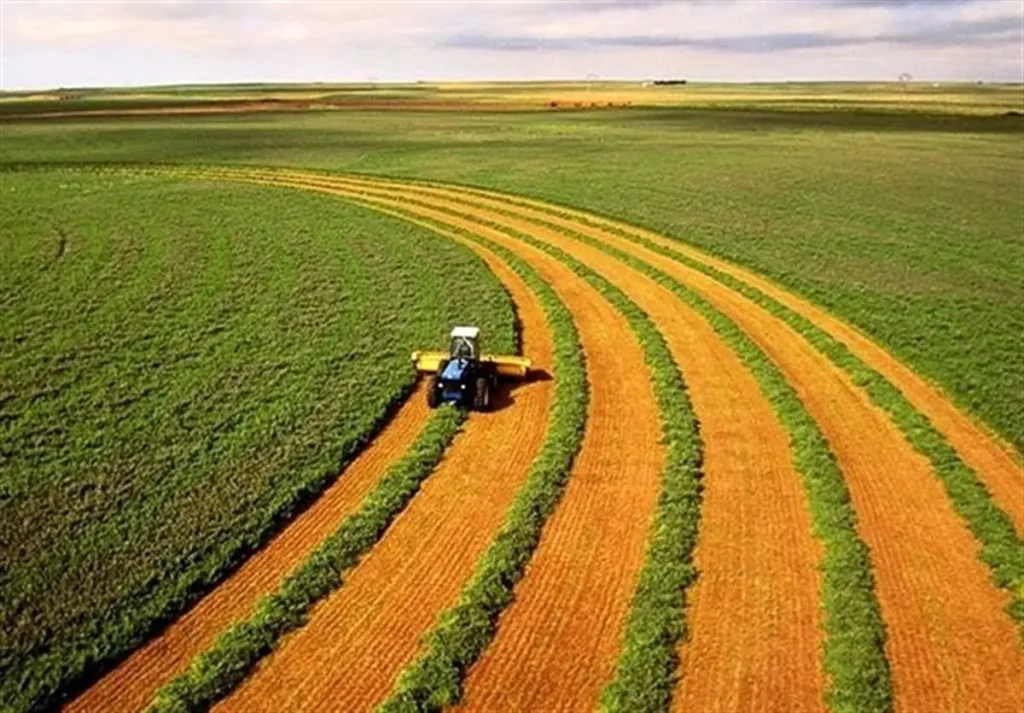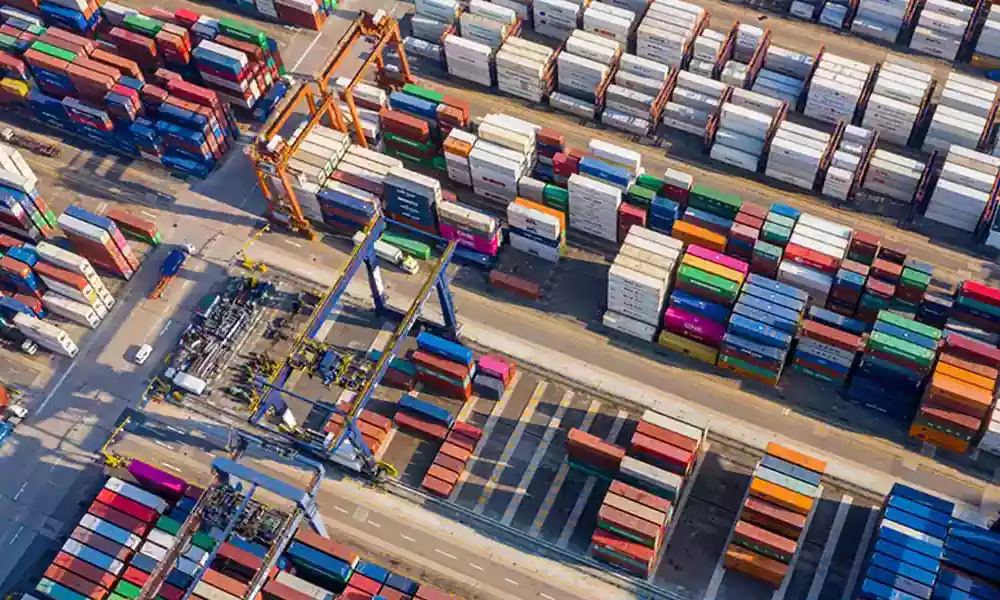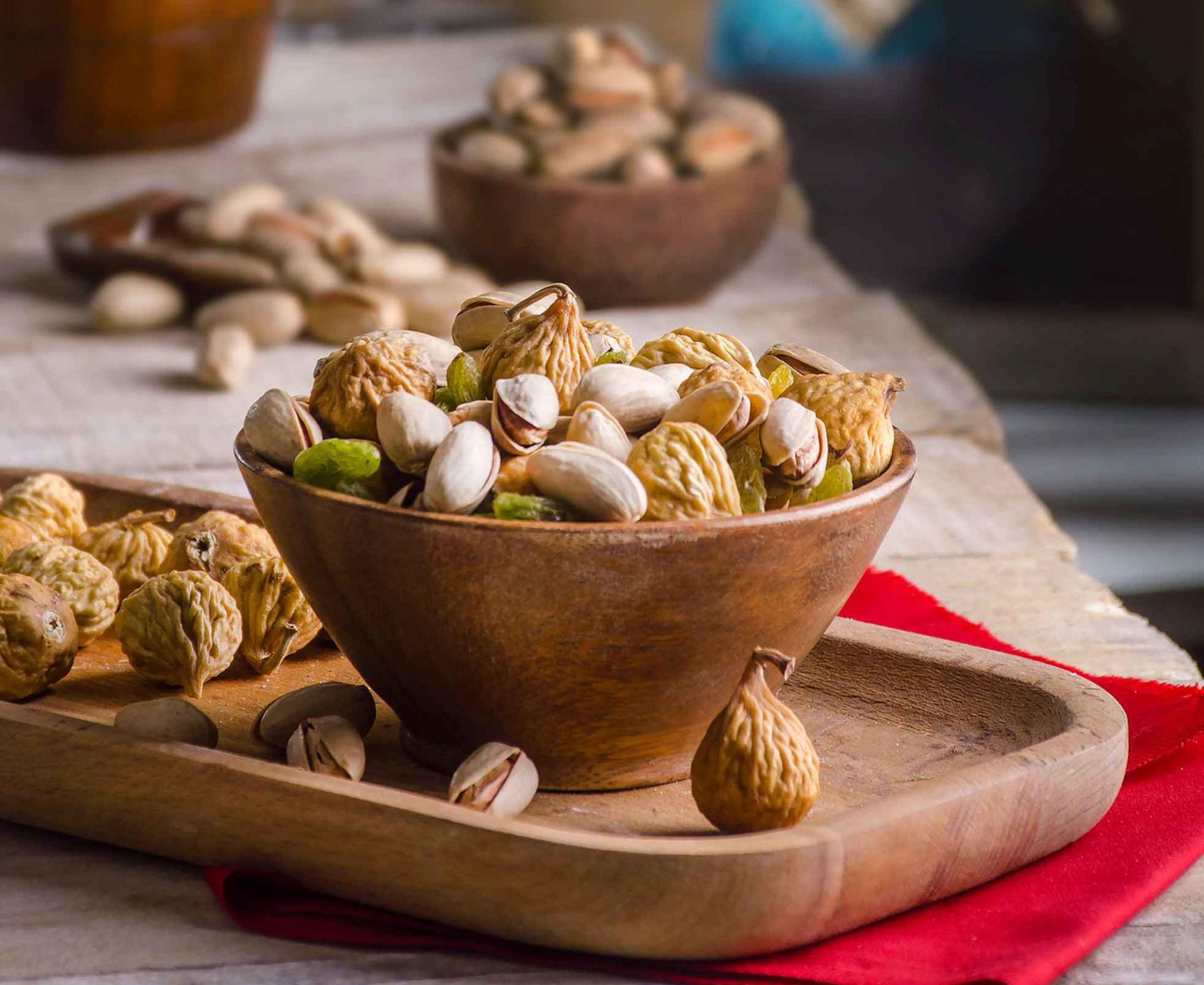10 Essential Tips for International Importers of Iranian Agricultural Products
When it comes to international trade, particularly in the agricultural sector, understanding the nuances of the market is crucial. Iran, with its rich agricultural heritage and diverse produce, offers a wealth of opportunities for international importers. However, navigating this landscape requires knowledge and strategic planning. Here are ten essential tips for those looking to import agricultural products from Iran, ensuring a smooth and successful experience.
1. Understand the Market Landscape
Before diving into the import process, it’s vital to familiarize yourself with the Iranian agricultural market. Iran is known for its high-quality fruits, vegetables, nuts, and grains. Researching the types of agricultural products that are in demand in your region can help you identify potential opportunities. Websites like fruit-trading.com provide valuable insights into the available products and their specifications.
2. Build Relationships with Reliable Suppliers
Establishing trust and building relationships with suppliers is paramount in international trade. Hamrah Tejarat Maham Company, a leading exporter of fresh agricultural products from Iran, has a solid reputation for quality and reliability. Partnering with established companies like Maham can provide you with the assurance of consistent quality and compliance with international standards. Their extensive network of local farmers ensures that you receive premium produce directly from the source.
3. Verify Compliance with International Standards
When importing agricultural products, compliance with international standards is non-negotiable. Ensure that your suppliers adhere to the necessary quality certifications and regulations. This includes understanding the phytosanitary requirements and any import restrictions in your country. Hamrah Tejarat Maham Company prides itself on meeting these standards, which is crucial for maintaining the integrity of your supply chain.
4. Understand Import Regulations
Each country has its own set of import regulations, and it’s essential to be well-versed in these before proceeding with any transactions. Familiarize yourself with the documentation required for importing agricultural products, including import permits, customs declarations, and health certificates. Al Alam Al Raqmi L.L.C, as Maham’s international trade partner in the UAE, can assist in navigating these regulations, ensuring that your imports comply with local laws.
5. Assess Logistics and Shipping Options
Logistics play a significant role in the import process. Evaluate the shipping options available for transporting agricultural products from Iran to your destination. Factors such as shipping time, costs, and the perishability of the products should be considered. Working with experienced logistics partners can streamline this process, reducing delays and ensuring that your products arrive in optimal condition.
6. Prioritize Quality Control
Quality control is critical when importing agricultural products. Establish clear quality expectations with your suppliers and consider implementing a quality assurance process. This could involve pre-shipment inspections or working with third-party quality control agencies. Ensuring that the products meet your standards before they leave Iran can save you from potential issues upon arrival.
7. Negotiate Terms and Pricing
When engaging with suppliers, clear communication regarding pricing and payment terms is essential. Don’t hesitate to negotiate terms that work for both parties. Understanding the pricing structure for agricultural products, including any potential tariffs or taxes, will help you budget effectively. Establishing a transparent pricing model can foster a stronger relationship with your suppliers.
8. Stay Informed About Market Trends
The agricultural market is dynamic, with trends and demands shifting regularly. Staying informed about market trends, consumer preferences, and seasonal variations can give you a competitive edge. Subscribing to industry newsletters, following relevant social media channels, and engaging with trade associations can help you stay updated on the latest developments in the Iranian agricultural sector.
9. Leverage Technology for Efficiency
In today’s digital age, leveraging technology can enhance your import operations. Utilize online platforms and tools for communication, order management, and tracking shipments. Websites like fruit-trading.com offer a range of resources that can facilitate your buying process, making it easier to connect with suppliers and manage your orders efficiently.
10. Cultivate Long-Term Partnerships
Finally, focus on cultivating long-term partnerships with your suppliers. Building trust and rapport can lead to better pricing, priority access to high-demand products, and improved communication. Regular visits to your suppliers in Iran can strengthen these relationships, allowing you to gain deeper insights into their operations and the agricultural landscape.
Conclusion
Importing agricultural products from Iran can be a rewarding venture, provided you approach it with the right knowledge and strategies. By understanding the market, building strong relationships with suppliers like Hamrah Tejarat Maham Company, and staying informed about regulations and trends, you can navigate the complexities of international trade successfully. Remember, the key to success lies in thorough preparation, effective communication, and a commitment to quality. With these ten essential tips, you’ll be well on your way to establishing a thriving import business in the agricultural sector.
11. Embrace Cultural Sensitivity
Navigating international trade isn’t just about the numbers; it’s also about people. Understanding the cultural nuances of doing business in Iran can significantly enhance your interactions with suppliers. Take the time to learn about local customs, communication styles, and business etiquette. For instance, building rapport through polite greetings and showing genuine interest in your partners’ culture can go a long way. In my experience, a little cultural awareness can turn a simple transaction into a lasting partnership.
12. Monitor Currency Fluctuations
When dealing with international imports, currency exchange rates can impact your costs significantly. Keep an eye on the Iranian Rial and how it fluctuates against your local currency. Using forward contracts or hedging strategies can help mitigate risks associated with currency volatility. It’s a smart move to consult with financial experts who specialize in international trade to make informed decisions that protect your bottom line.
13. Be Prepared for Challenges
Importing from Iran, like any international trade, comes with its share of challenges. From geopolitical tensions to logistical hurdles, being prepared for the unexpected is crucial. Have contingency plans in place for potential disruptions. Whether it’s sourcing alternative suppliers or adjusting shipping routes, being adaptable can help you navigate through tough situations without significant losses.
14. Engage in Sustainable Practices
Sustainability is becoming increasingly important in global trade, and the agricultural sector is no exception. Consider sourcing products from suppliers who prioritize environmentally friendly practices. This not only aligns with global trends but can also appeal to a growing consumer base that values sustainability. Highlighting your commitment to ethical sourcing can enhance your brand’s reputation and attract more customers.
15. Invest in Marketing Your Products
Once you’ve successfully imported agricultural products, the next step is to market them effectively. Understand your target audience and tailor your marketing strategies accordingly. Utilize social media, local trade shows, and online marketplaces to showcase your products. Sharing stories about the origins of your produce and the farmers behind them can create a compelling narrative that resonates with consumers.
16. Seek Feedback and Adapt
After your initial imports, actively seek feedback from your customers. Understanding their experiences and preferences can provide invaluable insights that help you refine your offerings. Adaptability is key in business; being open to change based on customer feedback can lead to improved products and services, ultimately driving growth.
17. Network with Industry Peers
Building a network within the agricultural import community can be incredibly beneficial. Attend industry conferences, trade fairs, and networking events to connect with other importers, exporters, and stakeholders. Sharing experiences and insights with peers can provide you with new ideas and strategies to enhance your business operations.
18. Stay Compliant with Trade Agreements
Familiarize yourself with any trade agreements between your country and Iran. These agreements can offer advantages such as reduced tariffs or simplified customs procedures. Staying compliant with these regulations not only helps you avoid legal issues but can also enhance your competitive edge in the market.
19. Focus on Customer Education
Educating your customers about the unique qualities of Iranian agricultural products can help differentiate your offerings. Create informative content that highlights the benefits, nutritional value, and culinary uses of the products you import. This not only positions you as an expert in your field but also builds trust with your customer base.
20. Reflect and Plan for the Future
Finally, take the time to reflect on your import journey regularly. Assess what strategies have worked, what challenges you’ve faced, and how you can improve moving forward. Setting clear goals for the future, whether it’s expanding your product range or entering new markets, can keep your business focused and motivated.
Final Thoughts
Importing agricultural products from Iran is not just a business transaction; it’s an opportunity to engage with a rich cultural heritage and a diverse market. By applying these additional tips alongside the foundational strategies, you can enhance your import operations and create a sustainable, successful business. The world of international trade is ever-evolving, and staying proactive and informed will set you apart in this competitive landscape. So, roll up your sleeves, dive in, and embrace the journey ahead!

21. Utilize Local Expertise
One of the smartest moves you can make is to tap into local expertise. Hiring a local consultant or partnering with a trade expert familiar with the Iranian agricultural landscape can provide you with insights that you might not find in textbooks or online resources. They can guide you through the intricacies of local regulations, market trends, and even cultural practices that can impact your business dealings. In my experience, having someone on the ground can save you time and money while helping you avoid common pitfalls.
22. Diversify Your Product Range
While it’s tempting to focus on a few popular items, diversifying your product range can help mitigate risks associated with market fluctuations. Consider exploring lesser-known agricultural products that may have niche markets in your region. For instance, Iran is famous for its saffron, pomegranates, and unique varieties of nuts. By offering a broader selection, you can attract a wider customer base and create new revenue streams.
23. Keep an Eye on Competitors
Understanding your competition is just as important as knowing your suppliers. Research other importers in your market and analyze their offerings, pricing strategies, and marketing tactics. This competitive intelligence can help you identify gaps in the market that you can exploit or areas where you need to improve. It’s all about finding your unique selling proposition and leveraging it to stand out.
24. Foster Transparency in Transactions
Transparency in your dealings can build trust not only with suppliers but also with your customers. Clearly communicate your sourcing practices, pricing structures, and any challenges you may face in the import process. Being upfront about potential delays or issues can help manage expectations and foster loyalty among your customers. In a world where consumers increasingly value authenticity, this transparency can be a game-changer.
25. Embrace E-commerce Solutions
The rise of e-commerce has transformed how businesses operate, and the agricultural sector is no exception. Setting up an online store or partnering with established e-commerce platforms can significantly broaden your reach. Make sure your website is user-friendly and showcases your products effectively. High-quality images, detailed descriptions, and customer reviews can enhance the shopping experience and encourage purchases.
26. Implement a Robust Supply Chain Management System
A well-organized supply chain management system can streamline your operations and reduce costs. Consider investing in software that helps you track inventory, manage orders, and analyze sales data. This can provide you with real-time insights into your operations, allowing you to make informed decisions quickly. A robust system not only improves efficiency but also enhances customer satisfaction by ensuring timely deliveries.
27. Leverage Social Media for Engagement
Social media isn’t just for marketing; it’s also a powerful tool for engagement. Use platforms like Instagram, Facebook, and LinkedIn to connect with your audience, share your story, and showcase your products. Engaging content, such as behind-the-scenes looks at your sourcing process or recipes featuring your products, can foster a community around your brand. Plus, it’s a great way to gather feedback and interact with customers directly.
28. Consider Seasonal Promotions
Agricultural products often have seasonal peaks, and capitalizing on these can boost your sales. Plan promotional campaigns around harvest seasons or local festivals that celebrate specific products. Offering discounts or bundles during these times can attract more customers and encourage them to try new items. It’s all about creating excitement and urgency around your offerings.
29. Stay Flexible and Adaptable
The world of international trade is unpredictable, and being flexible can be your greatest asset. Whether it’s adjusting to sudden changes in regulations, market demands, or even global events, having a mindset that embraces change can keep your business resilient. Regularly reviewing your strategies and being willing to pivot when necessary can set you apart from competitors who may be slower to adapt.
30. Celebrate Your Successes
Lastly, don’t forget to celebrate your achievements, no matter how small. Whether it’s securing a new supplier, hitting a sales milestone, or receiving positive customer feedback, taking the time to acknowledge your successes can boost morale and motivate your team. It’s easy to get caught up in the hustle and bustle of business, but recognizing your progress can foster a positive work environment and encourage continued growth.
In Conclusion
Importing agricultural products from Iran is a multifaceted journey filled with opportunities and challenges. By implementing these additional strategies alongside the foundational tips, you can create a well-rounded approach to your import business. Remember, success in international trade isn’t just about the products you sell; it’s about the relationships you build, the knowledge you acquire, and the adaptability you demonstrate. So, keep your eyes on the prize, stay proactive, and enjoy the adventure that lies ahead!




